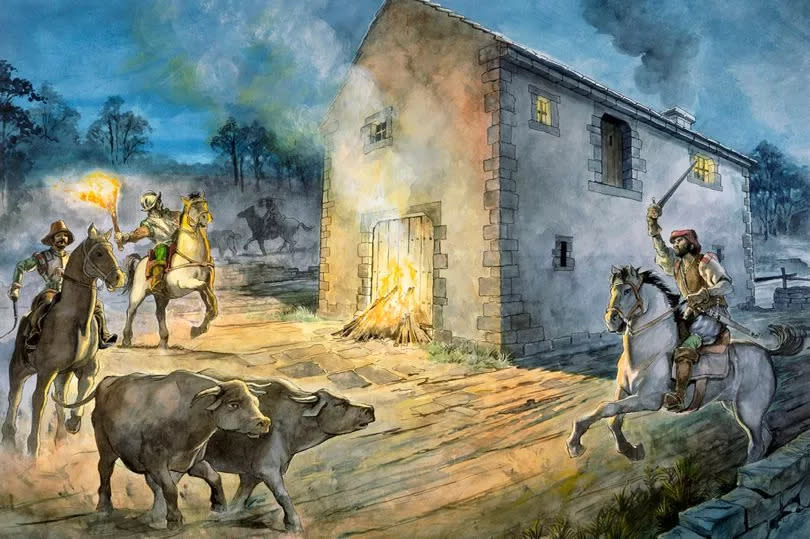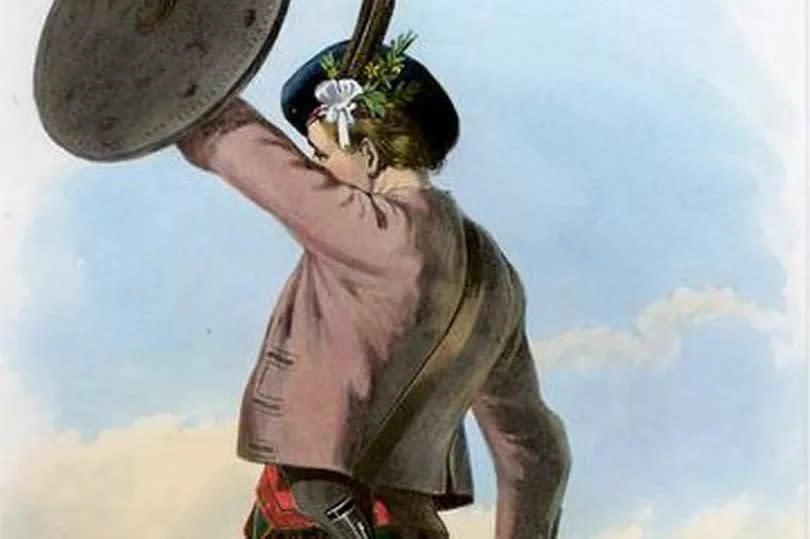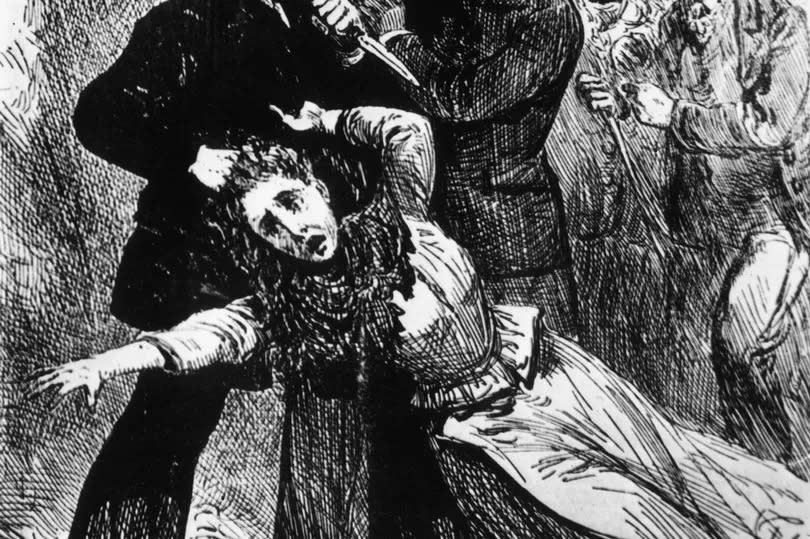Common words and phrases you had no idea originally came from Scotland

We're all familiar with them and we certainly use them, but have you ever paused to consider the origins of the idioms and figures of speech that pepper our daily conversations?
Expressions like 'skulduggery' and 'caught red-handed' are widely recognised throughout the English-speaking world, yet many people will be completely unaware that they - and many other common phrases - originated in Scotland.
We've taken a look at some of the more fascinating everyday sayings and terms that Scots first uttered or that boast a Scottish heritage.
Skullduggery
The term, used to describe deceitful or dishonest behaviour, has been used in everything from TV dramas to politics. It is widely used in the US, but actually originated in Scotland.
It is believed to be derived from the Scots term 'sculduddery' or 'sculduddrie', which refers to adultery or immoral behaviour. However, it remains unclear how it evolved into the modern iteration.
Blackmail
Typically referring to the act of demanding money through threats, often involving violence or exposure of secrets, 'blackmail' has its roots in the Scottish Borders, according to dictionary website, Mirriam-Webster.
'Mail' in this context is derived from the Old Norse word for agreement and was used to describe a tribute demanded by Scottish Reivers, who looted villages and farms across the border. The additional payments extorted by the warriors to stop them raiding specific villages became known as blackmail.

Diehard
The term 'diehard' is typically used to describe someone who staunchly resists change or is a stout supporter of a cause. It also shares its name with a globally beloved Christmas film, but its origins are quite fascinating.
Edinburgh's own William Inglis, a Lieutenant-Colonel in the British 57th Regiment of Foot, is acknowledged for coining the term during the Battle of Albuera against Napoleon's forces in 1811.
Inglis rallied his troops with the cry: "Die hard the 57th, die hard!" His regiment, known for their determination to fight 'til the end, would later earn the nickname 'Die Hards'.
Backs to the wall
Another phrase with military origins, 'backs to the wall' is typically used to describe a desperate last stand. This phrase gained popularity thanks to Edinburgh-born Field Marshal Douglas Haig, who led British forces in World War One.
The London Times reported in 1918 that he instructed his troops to hold every position "with our backs to the wall" and continue fighting against the advancing German forces.
A feather in your cap
Usually used to acknowledge an individual's accomplishment, this phrase dates back to the tradition of many warrior cultures who added a feather to their headgear for each enemy they killed.
It became popular in places like Scotland where wearing eagle feathers in their glengarry was associated with rank among certain Scottish clans.

Botched job
The phrase 'Botch job' or 'Botched' is generally used to describe a poorly executed task. Although its origins are disputed, it is believed that 'botch' is a corruption of the name Bouch, referring to Thomas Bouch, a Victorian architect and railway engineer.
Bouch built the Tay Bridge and was knighted by Queen Victoria for his efforts but he failed to notice flaws in his design, leading to the collapse of the bridge and the death of train passengers. His infamy is theorised to have led to the modern phrase, though some people claim the term was used before the disaster.
Caddie and Fore!
With Scotland being the home of golf, it makes sense that two of the words closely associated with the sport hail from here too. The individuals who carry the clubs for golfers, while also offering advice on the course, are known as caddies.
This moniker stems from the French word 'cadet' and was initially used in Scotland to describe an errand boy or a young male servant. It's said that the golf-related use of the word started in the early 1700s.

Golfers are expected to shout "Fore!" as a warning cry to others on the course after a wayward strike. According to scottishgolfhistory.org, early golfers employed 'forecaddies' to stand where the ball might land to help find them - as they were more expensive back then.
After striking the ball, they would shout "forecaddie!" to let their man know the ball was on the way, with this eventually being shortened to the word we use today.
Caught red handed
This intriguing expression, which now means 'caught in the act', has its roots deep in 15th Century Scots Law, where it pertained to a murderer apprehended with blood still on their hands.
The phrase 'taken red-handed' was famously incorporated by Sir Walter Scott in his 1819 novel Ivanhoe, depicting someone caught while perpetrating a crime. It even appears in the Scottish Acts of Parliament of James I, with one statute demanding that a culprit must be "taken reid hand".

Armed to the teeth
While often linked to 1600s pirates from Port Royal, Jamaica, who reputedly held knives in their mouths during ship raids, there's a Scottish twist to the tale. Some suggest it could be a variation of 'armed to the Teith', referring to the River Teith, which runs from Callander until it meets the Forth just west of Stirling.
Highlanders had to relinquish their weapons before crossing to trade with the Lowlanders, but they were permitted to remain 'armed to the Teith' to defend against bandits until they reached the river.
Slogan
Today, we associate the word slogan primarily with marketing and advertising, but it actually comes from the Gaelic 'sluagh-ghairm', which means a clan's battle cry.
Lastly, a phrase that isn't actually Scottish....
Scot free
Used to refer to someone who has managed to evade punishment or consequences, many people believe it is associated with Scotland - despite having no connection.
It actually refers to a tax imposed on the Scandinavian people around the 13th Century. The term 'Skat' (tax) was later corrupted to 'Scot', leading to those exempt from paying the tax being referred to as 'Scot free'.
Don't miss the latest news from around Scotland and beyond. Sign up to our daily newsletter.

 Yahoo News
Yahoo News 
